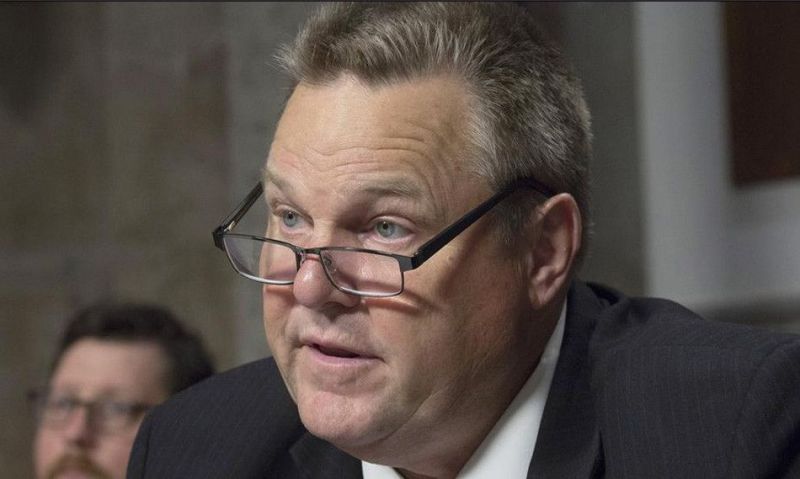
The bill would require VA to develop plans and workforce hiring strategies to complete new facility projects, examine infrastructure budgeting, and provide Congress with its plans and performance data for enhanced accountability.
Sen. Jon Tester on Tuesday proposed legislation designed to modernize the Department of Veterans Affairs' medical centers and other infrastructure after he and 11 other senators last month blocked a nearly $2 trillion VA plan to close, consolidate and upgrade agency facilities across the country.
The bill, dubbed the “Build, Utilize, Invest, Learn, and Deliver [or BUILD] for Veterans Act of 2022,” would require the VA to develop plans and workforce hiring strategies to complete new facility projects, examine infrastructure budgeting, and provide Congress with its plans and performance data for enhanced accountability.
“When it comes to delivering new hospitals, clinics, cemeteries, benefits offices, and other facilities for veterans and the employees that serve them, we’ve got to set VA up for success,” said Tester, D-Mont., chairman of the Senate Veterans’ Affairs Committee. “The BUILD for Veterans Act pushes VA to modernize and manage its current and future infrastructure needs through common-sense provisions that’ll save taxpayer dollars in the process.”
Additionally, the bill would also require the VA to provide plans and performance data to Congress, implement a schedule to eliminate or repurpose unused and vacant buildings and examine infrastructure budgeting strategies. Moreover, it will require the VA to provide yearly budget requirements for 10 years.
In June, Tester and 11 other senators opposed the VA’s Asset and Infrastructure Review, saying the recommendations would not expand or strengthen the agency’s infrastructure and put veterans in rural and urban areas at a disadvantage.
The VA was required to establish the Asset and Infrastructure Review as part of the Maintaining Internal Systems and Strengthening Integrated Outside Networks Act of 2018, or MISSION Act. The review was designed to analyze the health care needs of veterans as well as the department’s infrastructure. That same year, Congress approved the creation of an Asset and Infrastructure Review Commission to work on the "modernization or realignment" of VA properties.
Tester’s new bill draws from the infrastructure portion of the Sergeant First Class Heath Robinson Honoring Our Promise to Address Comprehensive Toxics Act of 2022, or PACT Act, which he and Sen. Jerry Moran of Kansas, the ranking Republican on the Senate VA Committee, introduced in May.
The PACT Act seeks to provide an easy path to health care and benefits for veterans who served near open-air burn pits, which were used throughout the 1990s and the post-9/11 wars to burn garbage, jet fuel and other materials. The bill would establish 31 new VA health care facilities in 19 states.
Veterans diagnosed with cancer, respiratory issues and lung disease at young ages have blamed exposure to the toxic fumes from these pits, but the VA contended for years that there wasn’t sufficient evidence to support their claims.
The bill also would improve the VA’s workforce and claims processing to speed up efforts to meet the needs of veterans. Additionally, the bill would expand health care eligibility to post-9/11 combat veterans and add 23 conditions related to burn pits and other toxic exposures to the VA’s list of service presumptions. It will also expand the list of presumptions related to Agent Orange exposure to include Thailand, Cambodia, Laos, Guam, American Samoa and Johnston Atoll, strengthen federal research on toxic exposure, and improve the VA’s resources and training.
The PACT Act could reach a vote in the Senate this week.
Various veteran service organizations announced their support for the BUILD for Veterans Act, including Disabled American Veterans, Iraq and Afghanistan Veterans of America, The American Legion, Veterans of Foreign Wars, and Paralyzed Veterans of America.
“Ensuring VA has state-of-the-art facilities to support the medical and mental health care needs of veterans is a top priority of the American Legion,” said Paul Dillard, national commander of The American Legion, in a prepared statement about the BUILD Act. “Investing in and revitalizing the aging VA infrastructure is vital to the overall success of the VA health care system. We must ensure that VA is properly resourced and structured to manage the infrastructure of the largest integrated health care network in the nation.”
- Veterans Healthcare

